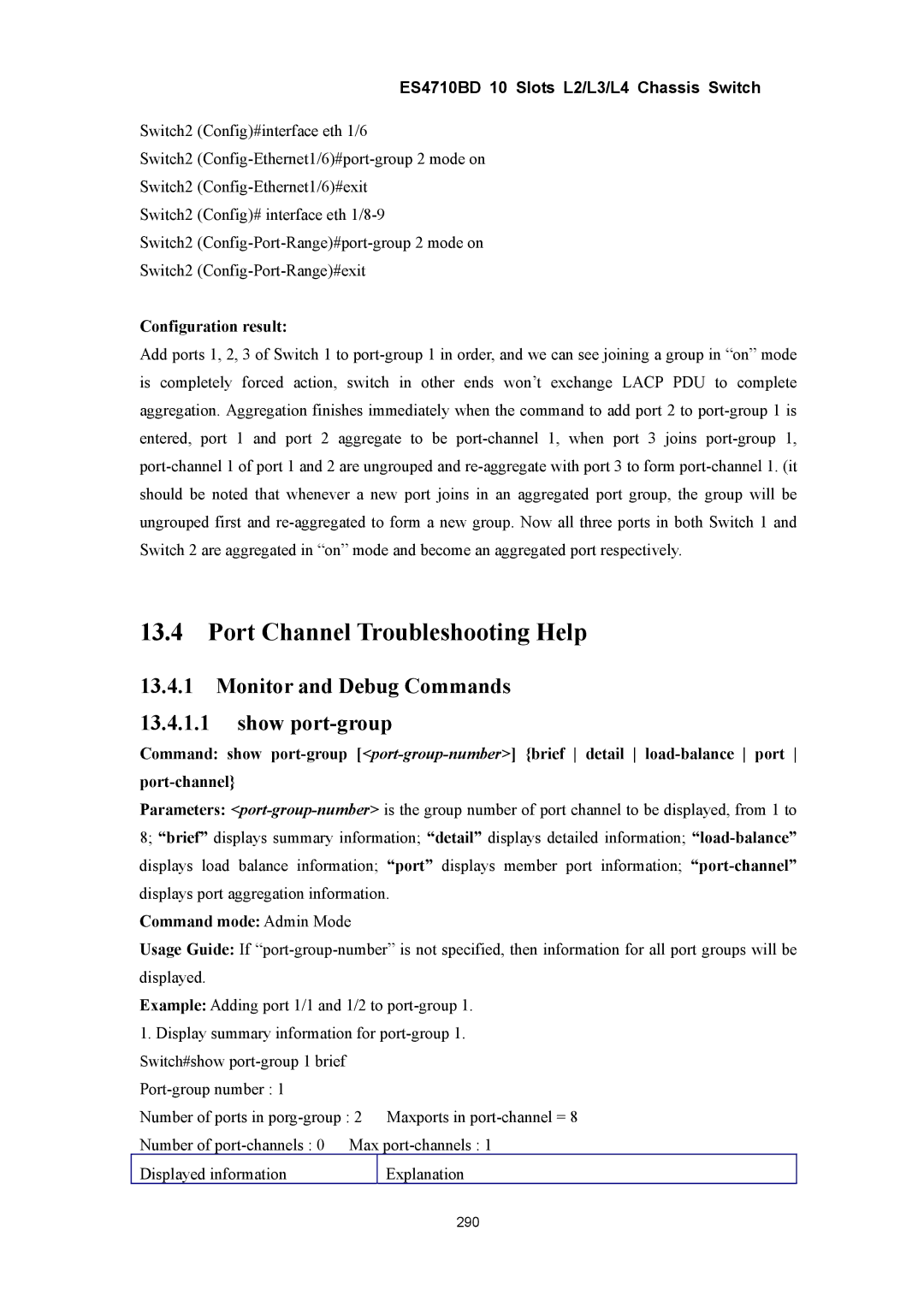ES4710BD 10 Slots L2/L3/L4 Chassis Switch
Switch2 (Config)#interface eth 1/6
Switch2
Switch2
Switch2 (Config)# interface eth
Switch2
Switch2
Configuration result:
Add ports 1, 2, 3 of Switch 1 to
13.4Port Channel Troubleshooting Help
13.4.1Monitor and Debug Commands
13.4.1.1show port-group
Command: show
Parameters:
Command mode: Admin Mode
Usage Guide: If
Example: Adding port 1/1 and 1/2 to
1.Display summary information for
Number of ports in
Number of | Max | |
Displayed information |
| Explanation |
| 290 | |
